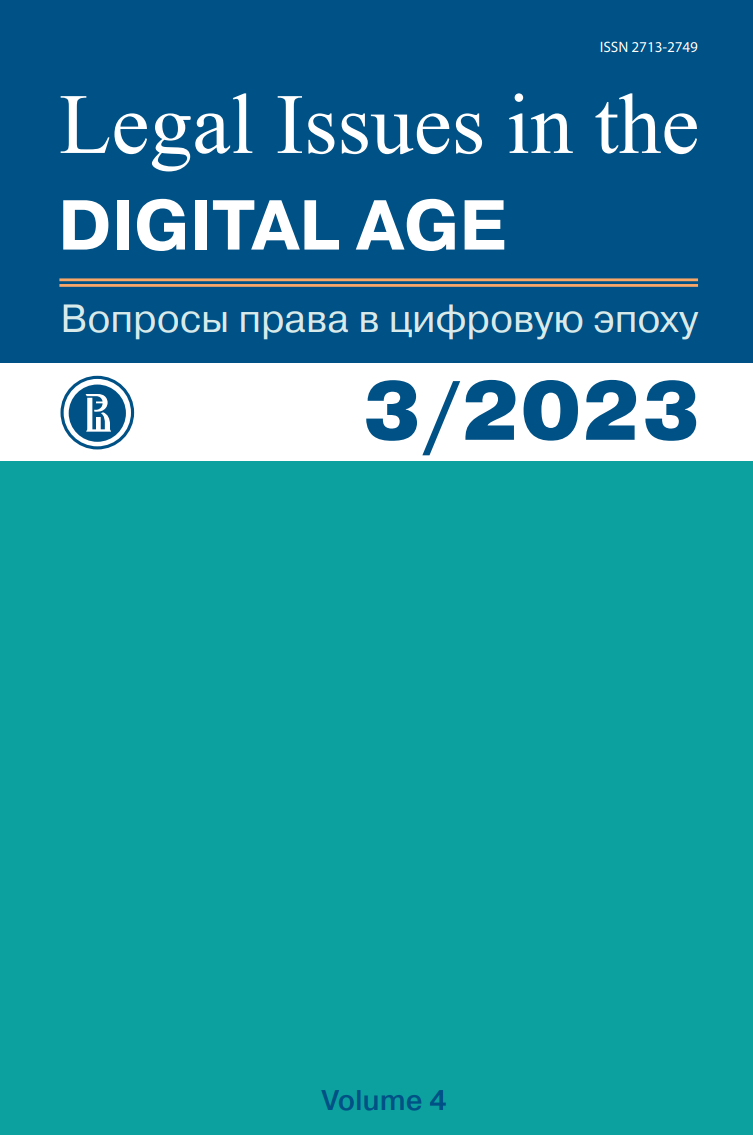Artificial Intelligence Governance and China’s Experience under the Community of Common Destiny for Mankind Concept
Abstract
In recent years artificial intelligence (AI), backed by big data and the Internet, hasbeen rapidly developing and determining the future direction of the world’s scienceand technology development. Although artificial intelligence is beneficial to the scientific and technological revolution and industrial modernization of mankind, it hasalso brought new risks. People pay more and more attention to the potential risks ofartificial intelligence that should be effectively managed. Artificial intelligence risksare characterized by the diversity of technological threats, the similarity of AI risksfaced by different countries and the high complexity of governance, something thatrequires concerted efforts by all countries. It is necessary to carry out the development of artificial intelligence in the country from the perspective of the commoninterests of mankind, ensure the safety and manageability of artificial intelligence,and strengthen international cooperation. At present Western countries advocatethe concept of technological hegemony and technological monopoly, and developing countries have little opportunity to express their opinions on the governance ofartificial intelligence, and China’s Community of the Common Destiny for MankindConcept is necessary for the governance of artificial intelligence. Based on that concept, the paper explores China’s new practices and proposals for the domestic andinternational AI governance. In response to the problem of overuse and misuse ofnew technologies, China proposes to establish an artificial intelligence governancesystem that includes joint management by various actors, open and transparent regulation, comprehensive consultations, and the development of effective evidence-based laws, so as to promote the beneficial development of artificial intelligence inthe future and contribute to the deepening of AI governance based on the Chineseproposal.
References
Chen P. (2018) On the principle of subjectivity in the construction of network legal rights. Zhong guo fa xue=Chinese Law, no. 3, pp. 71–88 (in Chinese)
Chen P. (2019) The power of algorithms: application and regulation. Zhe jiang she hui ke xue=Zhejiang Social Science, no. 4, pp. 52–58 (in Chinese)
Chen P. (2019) Government in the era of smart governance: risk prevention and capacity enhancement. Ning xia she hui ke xue=Ningxia Social Science, no.1, pp. 95–104 (in Chinese)
Chen J. (2018) Legal challenges of artificial intelligence: Where should we start? Bi jiao fa yan jiu=Comparative Law Studies, no. 5, pp. 136–148 (in Chinese)
Gao Q. (2020) A primer on intelligent revolution and modernization of national governance. Zhong guo she hui ke xue=Chinese Social Science, no.7, pp. 81–102 (in Chinese)
Han Y., Zhang F., Peng J. (2023) Order reconstruction: global economic governance under the impact of artificial intelligence. Shi jie jing ji yu zheng zhi=World Economy and Politics, no.1, pp.121–149 (in Chinese)
Jiang K. (2019) Law as algorithm. Qing hua fa xue=Tsinghua Law, no.1, pp. 64–75 (in Chinese)
Li C. (2021) Legal governance of artificial intelligence discrimination. Zhong guo fa xue=Chinese Law, no. 2, pp.127–147 (in Chinese)
Liu X. (2003) Dilemmas and directions of cognitive science research programs. Zhong guo she hui kexue=Chinese Social Sciences, no. 1, pp. 99–108 (in Chinese)
Ma C. (2018) Social risks of artificial intelligence and its legal governance. Fa lv ke xue (xi bei zheng fa da xue xue bao)=Legal Science. Journal of Northwest University of Politics and Law, no. 6, pp. 47–55 (in Chinese)
Mei L. (2023) Technology displacing power: changing power structure of national governance in the age of artificial intelligence. Wu han da xue xue bao (zhe xue she hui ke xue ban)=Journal of Wuhan University. Philosophy and Social Science Edition, no. 1, pp. 44–54 (in Chinese)
Sun W. (2017) Rethinking value on artificial intelligence. Zhe xue yan jiu=Philosophical Research, no.10, pp.120–126 (in Chinese)
Shen X., Shi B. (2018) The future computed: artificial intelligence and its role in society. Beijing: Beijing University Press, 275 p. (in Chinese)
Wu S., Luo J. (2018) Legal governance of artificial intelligence safety: a review around system safety. Xin jiang shi fan da xue xue bao(zhe xue she hui ke xue ban)=Journal of Xinjiang Normal University. Philosophy and Social Science Edition, no. 4, pp.109–117 (in Chinese)
Xu K. (2022) China’s construction and theoretical reflection on the system of accounting laws. Fa lv ke xue(xi bei zheng fa da xue xue bao)=Legal Science. Journal of Northwestern University of Politics and Law, no. 1, pp.124–132 (in Chinese)
Yu N. (2017) Self-consciousness and object-consciousness: the class nature of artificial intelligence. Xue shu jie=Academia, no. 9, pp. 93–101 (in Chinese)
Zhang X. (2023) Data risks and governance paths of generative artificial intelligence. Fa lv ke xue(xi bei zheng fa da xue xue bao) =Legal Science. Journal of Northwest University of Politics and Law, no. 5, pp. 42– 54 (in Chinese)
Zhang A., Sun Y. (2021) The subjective perspective of algorithmic power and its state capacity shaping. Xue shu yue kan=Academic Monthly, no. 12, pp. 96–105 (in Chinese)
Zhang W. (2021) Building legal order of intelligent society. Xin hua wen zhai=Xinhua Digest, no. 3, pp. 18–23 (in Chinese)
Zhang L. (2023) Legal positioning and hierarchical governance of generative artificial intelligence. Xian dai fa xue=Modern Law, no. 4, pp. 126–141 (in Chinese)
Zhu M., Xu C. (2023) International soft law regulation of artificial intelligence ethics: current situation, challenges and countermeasures. Zhong guo ke xue yuan yuan kan=Bulletin of Chinese Academy of Sciences, no. 7, pp. 1037–1049 (in Chinese)
Authors who publish with this journal agree to the Licensing, Copyright, Open Access and Repository Policy.









